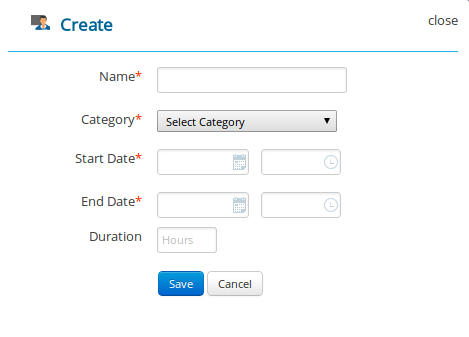I have to create a form to track activity start and end time. Which format is more appropriate. While filing the form the time passes by and it gives a warning - "Start time should be greater than current time."
Start time-1:45:20 (hr:min:sec)
Start time-1:45 (hr:min)
Start time-1 (hr)
Start time may be fixed but end time?
End time-1:45:20 (hr:min:sec)
End time-1:45 (hr:min)
End time-1: (hr)

I have another option can we track the activity according to start and end time only if it starts and ends on the same day.
